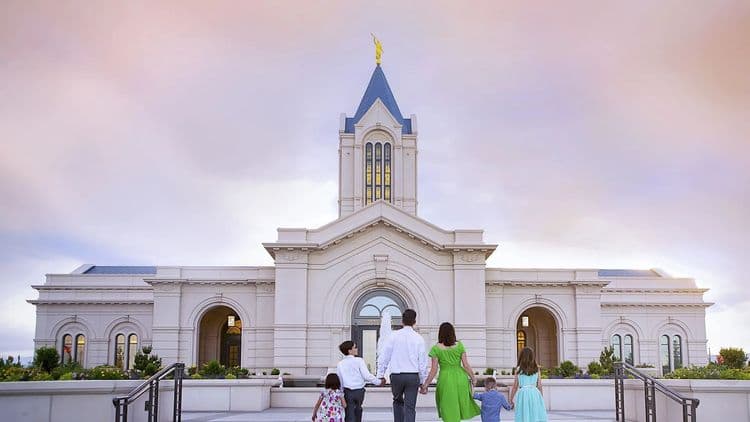Doctrine and Covenants 85-87
“Stand Ye in Holy Places”
August 4 - August 10
scripture
quotes
A Sobering and Humbling Thought
<p>It is a sobering and humbling thought then to realize that we have been chosen beforehand and reserved for a special purpose—to use that priesthood for the benefit of others and not for our own aggrandizement.</p>
Theodore M. Burton, “Blessed Are the Peacemakers”, October 1974 General Conference
An Inheritance of Infinite Worth
<p>How you deal with life’s trials is part of the development of your faith. Strength comes when you remember that you have a divine nature, an inheritance of infinite worth. The Lord has reminded you, your children, and your grandchildren that you are lawful heirs, that you have been reserved in heaven for your specific time and place to be born, to grow and become His standard bearers and covenant people. As you walk in the Lord’s path of righteousness, you will be blessed to continue in His goodness and be a light and a savior unto His people (See D&C 86:8–11).</p>
Russell M. Nelson, “Face the Future with Faith”, April 2011 General Conference
Missionary Work on Both Sides of the Veil
<p>In this final verse the Lord reminds us of two things. First, he reminds us of our responsibility to do missionary work here on the earth. Second, he informs us that we are not only to be messengers of salvation to the living, but saviors for our ancestors who went before us and who, though now dead, have paved the way whereby we might receive our present blessings. It is through them we received our priesthood. The promise was made that, even if they were born at a time and place where they could not hear the gospel preached in life, God would provide saviors for them from among their descendants. We are those saviors God promised through whom they can have every priesthood blessing.</p>
Theodore M. Burton, “Salvation for the Dead: A Missionary Activity”, April 1975 General Conference
commentary
Commentary on D&C 86:8–11
<p>The final part of this revelation pivots from explaining the parable of the wheat and the tares to directly calling the descendants of the House of Israel to come forward and take part in the great and last Restoration. Shortly after he was ordained as the first patriarch of the Church, Joseph Smith Sr. pronounced the following blessings on his son Joseph: “I bless thee with the blessings of thy fathers Abraham, Isaac and Jacob; and even the blessings of thy father Joseph, the son of Jacob. Behold, he looked after his posterity in the last days, when they should be scattered and driven by the Gentiles, and wept before the Lord: he sought diligently to know from whence the son should come who should bring forth the word of the Lord, by which they might be enlightened, and brought back to the true fold.”<a id="_ftnref1" class="see-footnote" title="" href="#_ftn1">[1]</a></p> <p>Joseph Smith was just one of a multitude of descendants of the House of Israel whose lineage was preserved and kept hidden from the world so that he and others could play their part in restoring the covenants given to Israel. The descendants of Israel who honor their heritage and those who join Israel’s descendants by adoption will be the instruments God uses to set up his kingdom in the last days. There is no distinction in the blessings God gives to a person who is a literal descendant of Israel or to a person who was adopted into Israel’s lineage through the sacred covenants of the gospel. Later revelations given to Joseph Smith explain how members of the Church in the latter days mirror the work of the Savior of all mankind by becoming saviors of their ancestors as well.</p> <div class="footnotes"> <p class="footnote"><a id="_ftn1" class="footnote-label" title="" href="#_ftnref1">[1]</a> Blessing from Joseph Smith Sr., 9 December 1834, p. 3, JSP.</p> </div>
Doctrine and Covenants Minute by Casey Paul Griffiths
